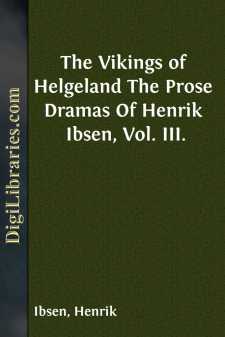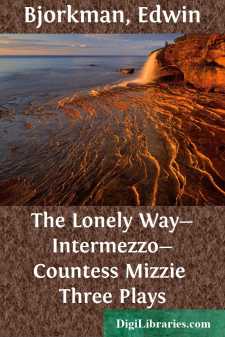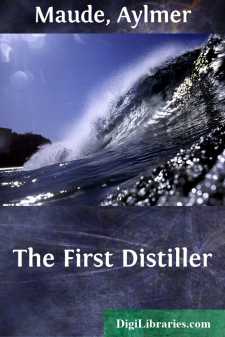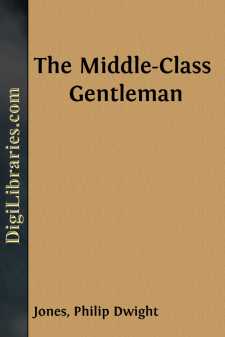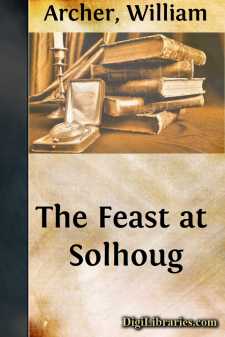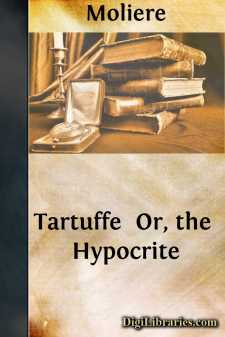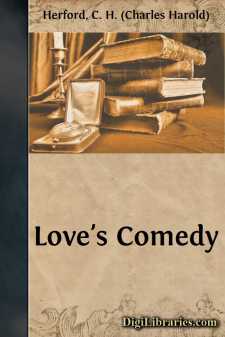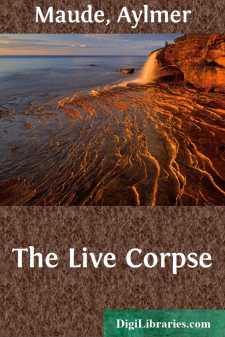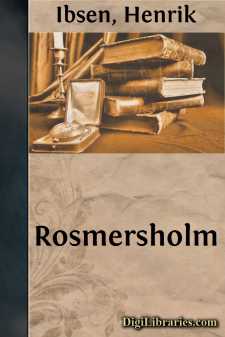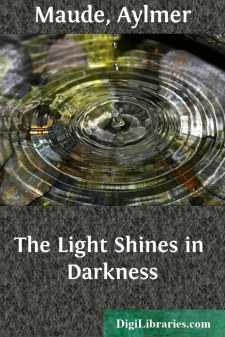Drama
- American 43
- Ancient, Classical & Medieval 45
- Asian 7
- Caribbean & Latin American 2
- Continental European
- English, Irish, Scottish, Welsh 91
- General 105
- Middle Eastern 1
- Religious & Liturgical 1
- Shakespeare 1
Continental European Books
Sort by:
by:
Henrik Ibsen
PLAY IN FOUR ACTS. ACT FIRST. (A rocky coast, running precipitously down to the sea at the back. To the left, a boat-house; to the right, rocks and pine-woods. The masts of two war-ships can be seen down in the cove. Far out to the right, the ocean, dotted with reefs and rocky islands; the sea is running high; it is a stormy snow-grey winter day.) (SIGURD comes up from the ships; he is clad in a white...
more...
by:
Edwin Bjorkman
INTRODUCTION Hermann Bahr, the noted playwright and critic, tried one day to explain the spirit of certain Viennese architecture to a German friend, who persisted in saying: "Yes, yes, but always there remains something that I find curiously foreign." At that moment an old-fashioned Spanish state carriage was coming along the street, probably on its way to or from the imperial palace. The...
more...
by:
Aylmer Maude
ACT I PEASANT [ploughing. Looks up] It's noon. Time to unharness. Gee up, get along! Fagged out? Poor old beast! One more turn and back again, that will be the last furrow, and then dinner. It was a good idea to bring that chunk of bread with me. I'll not go home, but sit down by the well and have a bite and a rest, and Peggy can graze awhile. Then, with God's help, to work again, and...
more...
ACT ONE SCENE I (Music Master, Dancing Master, Musicians, and Dancers) (The play opens with a great assembly of instruments, and in the middle of the stage is a pupil of the Music Master seated at a table composing a melody which Monsieur Jourdain has ordered for a serenade.) MUSIC MASTER: (To Musicians) Come, come into this room, sit there and wait until he comes. DANCING MASTER: (To dancers) And...
more...
by:
William Archer
INTRODUCTION* Exactly a year after the production of Lady Inger of Ostrat—that is to say on the "Foundation Day" of the Bergen Theatre, January 2, 1866—The Feast at Solhoug was produced. The poet himself has written its history in full in the Preface to the second edition. The only comment that need be made upon his rejoinder to his critics has been made, with perfect fairness as it seems...
more...
by:
Moliere
ACT I SCENE I MADAME PERNELLE and FLIPOTTE, her servant; ELMIRE, MARIANE, CLEANTE, DAMIS, DORINE MADAME PERNELLE Come, come, Flipotte, and let me get away. ELMIRE You hurry so, I hardly can attend you. MADAME PERNELLE Then don't, my daughter-in law. Stay where you are. I can dispense with your polite attentions. ELMIRE We're only paying what is due you,...
more...
INTRODUCTION* Koerlighedens Komedie was published at Christiania in 1862. The polite world—so far as such a thing existed at the time in the Northern capital—received it with an outburst of indignation now entirely easy to understand. It has indeed faults enough. The character-drawing is often crude, the action, though full of effective by-play, extremely slight, and the sensational climax has...
more...
by:
Aylmer Maude
Scene 1 Protásov's flat in Moscow. The scene represents a small dining-room. Anna Pávlovna, a stout grey-haired lady, tightly laced, is sitting alone at the tea-table on which is a samovár. Enter nurse, carrying a teapot. NURSE. May I have a little hot water, ma'am? ANNA PÁVLOVNA. Yes. How's Baby? NURSE. He's restless.… There's nothing worse than for a lady to nurse her...
more...
by:
Henrik Ibsen
ACT 1 (SCENE—The sitting-room at Rosmersholm; a spacious room, comfortably furnished in old-fashioned style. In the foreground, against the right-hand wall, is a stove decorated with sprigs of fresh birch and wild flowers. Farther back, a door. In the back wall folding doors leading into the entrance hall. In the left-hand wall a window, in front of which is a stand filled with flowers and plants....
more...
by:
Aylmer Maude
ACT I Scene 1 The scene represents the verandah of a fine country-house, in front of which a croquet-lawn and tennis-court are shown, also a flower-bed. The children are playing croquet with their governess. Mary Ivánovna Sarýntsova, a handsome elegant woman of forty; her sister, Alexándra Ivánovna Kóhovtseva, a stupid, determined woman of forty-five; and her husband, Peter Semyónovich , a fat...
more...


